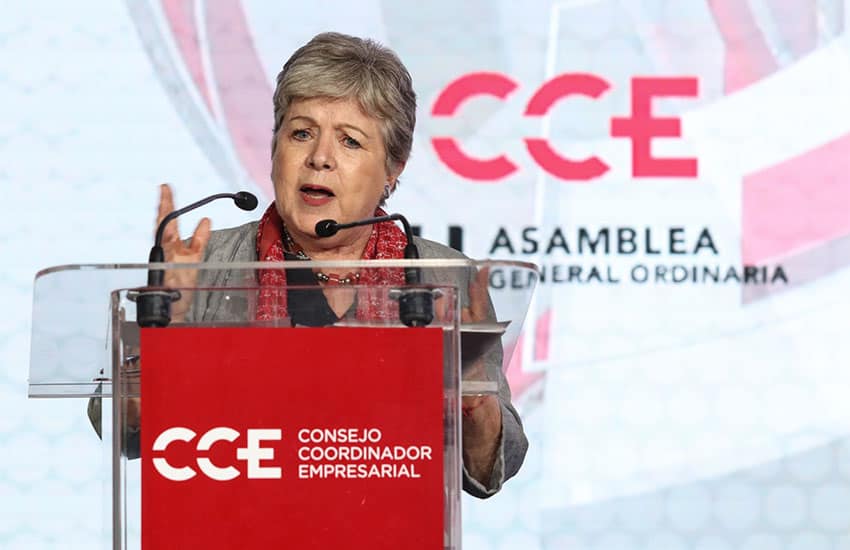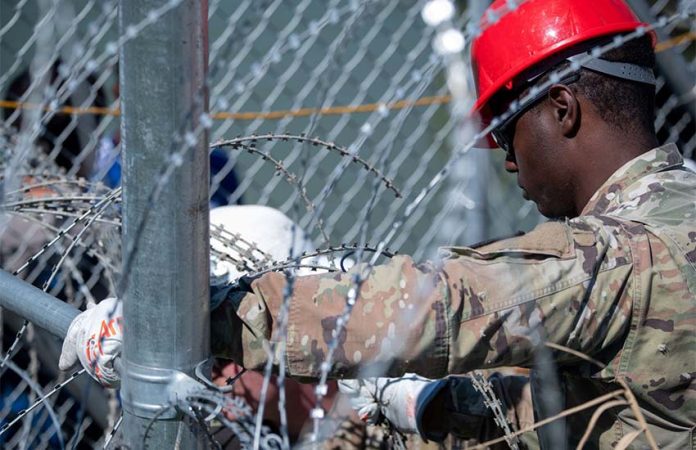Mexico will not accept repatriations of migrants by the state of Texas “under any circumstances,” the Mexican government said Tuesday after the United States Supreme Court ruled that the Lone Star state could begin enforcing a controversial immigration law.
The U.S. Supreme Court handed down a decision on Tuesday that enabled Texas to enact Senate Bill 4 (SB 4), a state law that allows Texas authorities to detain undocumented migrants and people suspected of crossing the border illegally. It also authorizes local judges to order the deportation of those found to have entered the state unlawfully.

However, a federal U.S appeals court issued an order late Tuesday that prevented Texas from enforcing the law. The case returned to court on Wednesday in Louisiana, where a panel of three federal judges “heard arguments over whether the law can take force while its constitutionality is being challenged in court” but “did not immediately issue a ruling,” according to a New York Times report Wednesday.
The Texas government, led by Governor Greg Abbott, did not announce any arrests made under SB 4 during the period on Tuesday that the law was in effect. The United States government is challenging the law, arguing that only federal authorities have the authority to detain migrants who enter the U.S. without authorization.
The Mexican Ministry of Foreign Affairs (SRE) published a statement on Tuesday to condemn “on behalf of the government of Mexico” SB 4’s entry into force.
The ministry said that the law “seeks to stop the flow of migrants by criminalizing them, and encouraging the separation of families, discrimination and racial profiling that violate the human rights of the migrant community.”
The SRE also said that “Mexico categorically rejects any measure that allows state or local authorities to exercise immigration control, and to arrest and return nationals or foreigners to Mexican territory.”
“… Mexico reiterates its legitimate right to protect the rights of its nationals in the United States and to determine its own policies regarding entry into its territory. … Mexico will not accept, under any circumstances, repatriations by the State of Texas,” the ministry said.
The Texas SB4 law unexpectedly comes into effect today, undermining the rights of migrants.
As head of @SRE_mx, I want to reiterate: the protection and support of Mexican citizens remains our top priority. I oppose any measure that criminalizes & discriminates against them.
— Alicia Bárcena (@aliciabarcena) March 19, 2024
It also said that the federal government would file “a friend-of-the-court brief with the U.S. Court of Appeals for the Fifth Circuit in New Orleans, Louisiana, to provide information on the impact that this law will have on the Mexican and/or Mexican American community and its effect on the relations between Mexico and the United States.”
The federal government has been speaking out against SB 4 since last year. President Andrés Manuel López Obrador asserted in December that Governor Abbott was attempting to “gain popularity” with the implementation of antimigrant measures but claimed that he would instead “lose support because there are a lot of Mexicans in Texas, a lot of migrants.”
The law is “inhumane” and “politically motivated,” he said, adding that Abbott is a “man with a malicious nature” or, in his terms, “un malo de Malolandia,” or a “baddie from Badland.”
On Tuesday, Mexico’s leading presidential candidates added their voices to the condemnation of SB 4.
Claudia Sheinbaum, the candidate for the ruling Morena party, said that the law criminalizes “not just migrants” but also other people based on the color of their skin or their way of speaking or dressing.
“We issue a complaint about this unjust decision. We will always raise our voices in defense of the Mexicans on the other side of the border, who, to a large extent, support the economy of Texas,” she wrote on the X social media platform.
Xóchitl Gálvez, the candidate for the three-party opposition alliance Strength and Heart for Mexico, said that the U.S. Supreme Court allowing SB 4 to take effect violated the human rights of migrants in the United States.
“The government of Mexico must act firmly in defense of our compatriots and demand, with forceful actions, the annulment of this law that puts our migrant brothers and sisters at risk,” she wrote on X.
With reports from AP
